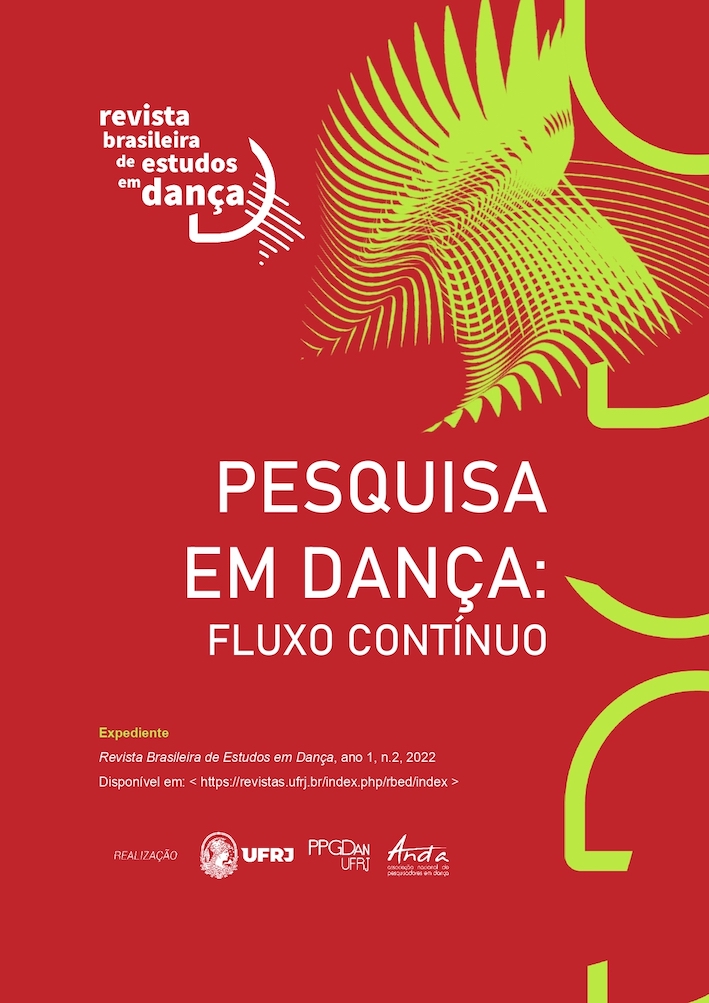Improvisations with archive-objects
we dance armengue & wear ancestral parangoles
DOI:
https://doi.org/10.58786/rbed.2022.v2.n2.55370Keywords:
danças negras, armengue, parangolé, improvisação com objetos, anticolonial, intercorporeidade.Abstract
In this article, the notion of improvisation in dance is approached from creative processes based on Afro-Brazilian cosmogonies. We call our experiences Armengue Dance. They are anti-choreographic and counter-dramaturgical scenic creations that make use ofobjects (ar-chive-objects) in their body compositions. These creations were made during workshops and classes that made use of elingaprinci-ples, developed initially in a postdoctoral dance internship. Our aim is to dismantle the prejudiced view, presented in Brazilian dictionaries, for the notion given about an improvised action from the term armen-gueand to discuss a dance with objects from the point of view of street epistemologies. In this sense, the concept of improvisation-ar-mengueis considered, in our studies, as a creative and anti-colonial weapon of the Brazilian people.
Downloads
Published
Versions
- 2023-11-30 (2)
- 2022-12-30 (1)
How to Cite
Issue
Section
License
Authors who publish in the Revista Brasileira de Estudos em Dança are
responsible for the content of signed articles and retain copyright.
They grant the journal the right of first publication with the work simultaneously
licensed under the Creative Commons Attribution-NonCommercial 4.0 License
(Open Archives Initiative - OAI). This feature, used for open-access journals,
allows sharing work for non-commercial purposes and acknowledges
authorship. If the text is later published in another vehicle, the author
must inform that it was initially published as an article in the Revista Brasileira
de Estudos em Dança. Therefore, even if the journal owns the first publication,
authors are entitled to publish their work in institutional repositories or on
their personal pages, even if the editorial process has not been completed.
The journal reserves the right to make normative, orthographic, and grammatical changes to maintain the language standard, respecting the authorial style.

